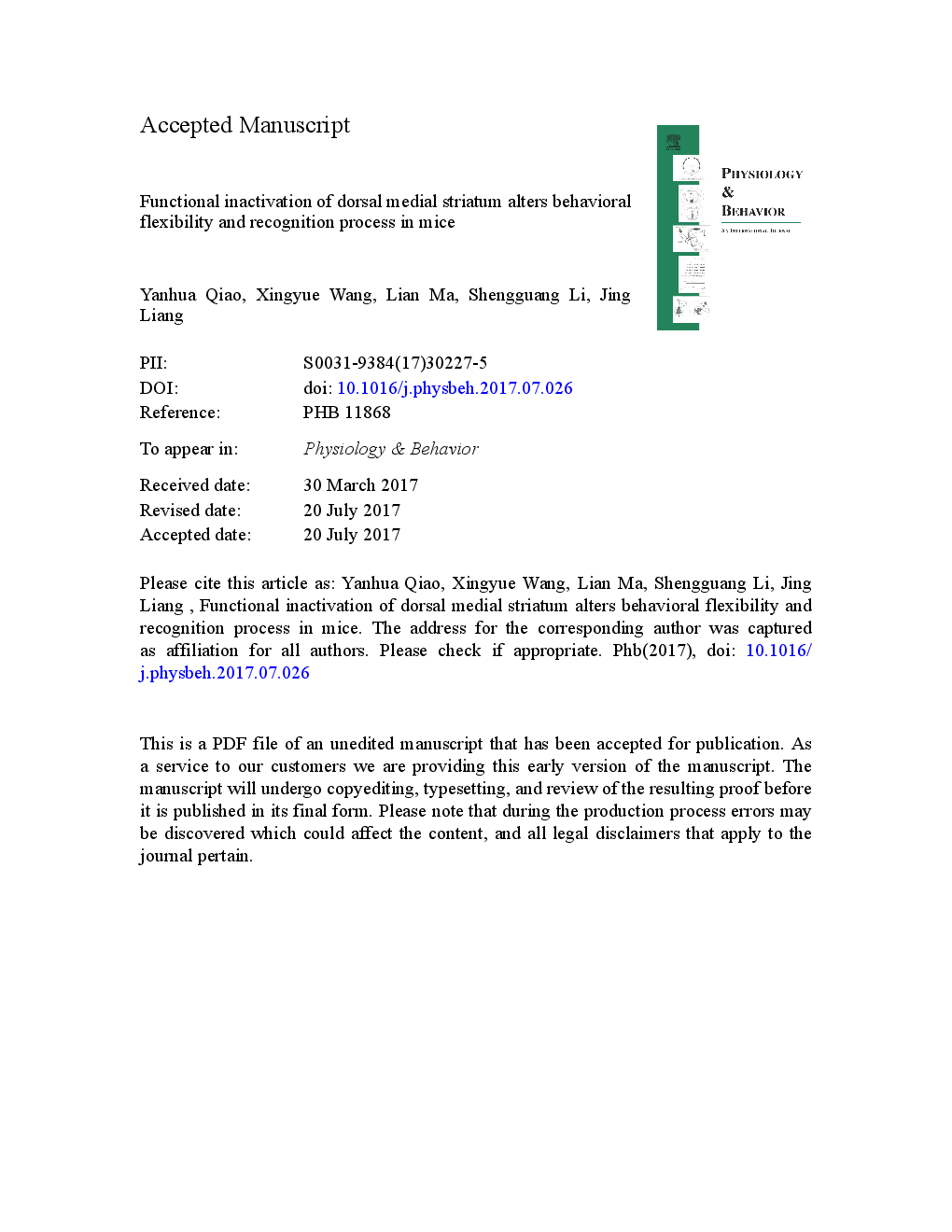ترجمه فارسی عنوان مقاله
غیرفعال کردن عملکرد روتاری مدیال پشتی، انعطاف پذیری رفتاری و روند تشخیص در موش ها را تغییر می دهد
عنوان انگلیسی
Functional inactivation of dorsal medial striatum alters behavioral flexibility and recognition process in mice
| کد مقاله | سال انتشار | تعداد صفحات مقاله انگلیسی |
|---|---|---|
| 128244 | 2017 | 50 صفحه PDF |
منبع

Publisher : Elsevier - Science Direct (الزویر - ساینس دایرکت)
Journal : Physiology & Behavior, Volume 179, 1 October 2017, Pages 467-477
ترجمه کلمات کلیدی
روان درمانی غیر فعال سازی نورون فرآیند شناخت، یادگیری معکوس، زنجیره سبک توتونها،
کلمات کلیدی انگلیسی
Dorsomedial striatum; Neuronal inactivation; Recognition process; Reversal learning; Tetanus toxin light chain;

